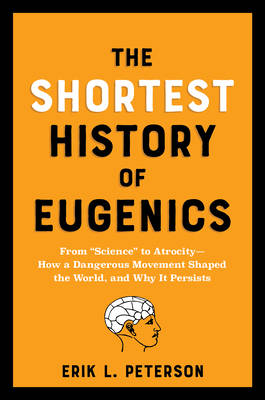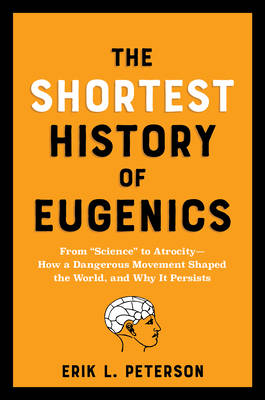
- Afhalen na 1 uur in een winkel met voorraad
- Gratis thuislevering in België vanaf € 30
- Ruim aanbod met 7 miljoen producten
- Afhalen na 1 uur in een winkel met voorraad
- Gratis thuislevering in België vanaf € 30
- Ruim aanbod met 7 miljoen producten
The Shortest History of Eugenics
From Science to Atrocity - How a Dangerous Movement Shaped the World, and Why It Persists
Erik PetersonOmschrijving
For the last two centuries, groups of influential men have, in the professed interest of fiscal responsibility, crime reduction, and outright racism, attempted to control who was allowed to bear children. Their efforts, "eugenics," characterize a movement that over the last century swept across the world--from the US to Brazil, Japan, India, Australia, and beyond--in the form of marriage restrictions, asylum detention, and sterilization campaigns affected millions. German physicians and scientists adopted and then heightened these eugenics practices beginning in 1939, starving or executing those they deemed "life unworthy of life."
But well after the liberation of Nazi deathcamps, health care workers and even the US government pursued policies worldwide with the express purpose of limiting the reproduction of poor non-whites. The Shortest History of Eugenics takes us back to the founding principles of the movement, revealing how an idea that began in cattle breeding took such an insidious turn--and how it lingers in rhetoric and policy today.
Specificaties
Betrokkenen
- Auteur(s):
- Uitgeverij:
Inhoud
- Aantal bladzijden:
- 304
- Taal:
- Engels
- Reeks:
Eigenschappen
- Productcode (EAN):
- 9781891011887
- Verschijningsdatum:
- 10/12/2024
- Uitvoering:
- Paperback
- Formaat:
- Trade paperback (VS)
- Afmetingen:
- 132 mm x 193 mm
- Gewicht:
- 294 g

Alleen bij Standaard Boekhandel
Beoordelingen
We publiceren alleen reviews die voldoen aan de voorwaarden voor reviews. Bekijk onze voorwaarden voor reviews.











